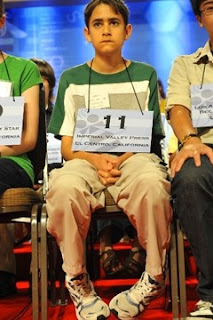 |
| See? Literally just a big circle. |
First, let's start with my favorite post from this semester. While I am generally pretty proud of the quality of my posts this semester- especially when compared with those of last semester, which I found in my first meta post to be a little too amateurish- my favorite recent post is "Stay Tuned for Tragedy!" To me, this post represents not only an exemplary analysis of themes we discussed in class being represented in a contemporary American context, but also a sufficiently accessible and engaging representation of my own personality within my writing.
In the post, I begin with some personal, narrative details which serve to explain the place of the post within the larger contexts of the American Studies year and my blog as a whole. This is something I have liked to do since my very first post, which Mr. o'Connor and Mr. Bolos noted for its accessibility to the reader (of course, sympathy for the reader is something that has always been an important part of writing to Mr. o'Connor and Mr. Bolos). However, where many of my posts (especially the earlier ones) tend to show weakness is in providing some sort of substantial, academic analysis to give the post any real purpose or merit. As Mr. Bolos wrote in response to my "The Story of Qaddafi's Death" post from first semester, "some more specific examples, rather than generalizations and impressions, might make this stronger." In fact, providing ample evidence in order to fully support and realize my claims is something that I have struggled with all year as a writer, and not just in my blog.
This is why I am all the more proud of this post, though, as it is also the post with more sources referenced and cited than any other post I have written this semester. In fact, at a point in the third and fourth paragraphs of the post, I reference no less than four sources within the span of three sentences; a strange quantifier, I know, but one that I think represents my increased awareness of- and dedication to- providing ample evidence to support my claims. Unlike many of my other posts, this one is not merely a long-winded rant with a single piece of evidence used as a springboard.
Yet it is not only the quantity, but the quality, too, of these sources which I feel makes this post so exemplary. Of the four sources I mentioned earlier, one is White Noise, a text that featured prominently in our American Studies curriculum; another is our "TV Tokenism" projects, which were also an essential part of our studies this year. The other two sources are the article I found that inspired the original idea for the post and another article I had found which connected this to my in-class sources. This is also, in my opinion, representative of the importance of this post to my blog as a whole, in that it is doing what I feel is part of the entire purpose of the American Studies blogging experience: Making connections between our curriculum and the themes we discuss in class, and the world we see around us. After all, a lesson in class (TV Tokenism) and a reading at home (White Noise) concerned with Americans' obsession with death are made all the more poignant when you see the same idea mirrored in our society in the present day.
Of course, one other thing I have found from looking through my backlog of blog posts (try saying that ten times fast) is that I will very easily start rambling on in my writing, so for now I will try to wrap this up. "Stay Tuned for Tragedy!" is my favorite blog post of the semester because it not only combines scholarly, analytical writing with my penchant for personal narrative, but it also connects the themes we discuss in class with contemporary American culture. In this way, I believe that it is both a great example of an American Studies blog post and a great example of a blog post in general.
Oh- and yes, the title of this post is a Die Hard reference.





